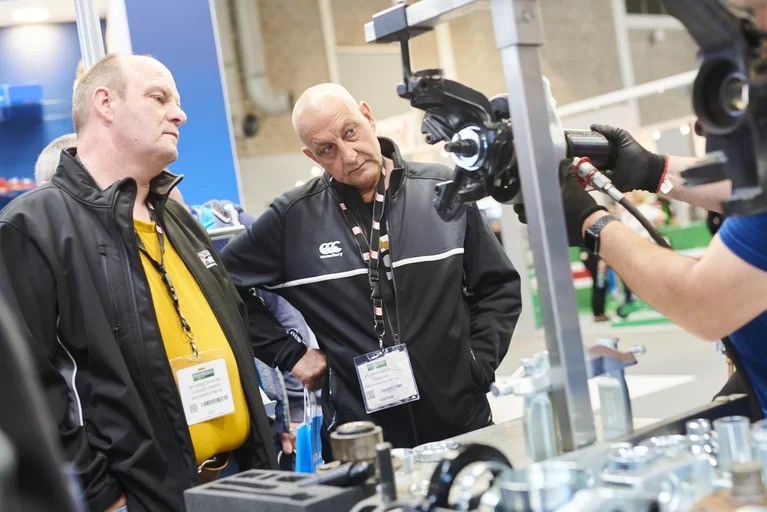
“There will be a lot of people out of it because they just won’t be able to cope with stocking and technology.
It will be interesting to see which of the big boys are still around. You might think that they’ll all still be here, but history teaches us otherwise.â€
Brian Spratt
Chief Executive, IAAF
———-

“In five years time the advances in technology should make it easier to access a wider variety of technical information through cheaper and more versatile diagnostic tools.
Whilst it may appear that things will have improved I fear only the most commercially aware garages will flourish in such an environment.
Garages that offer a quality service, customer satisfaction and charge a price that matches the quality of the workmanship will prevail in an environment where cars will be much more reliable and go even longer between services.
The challenges will lie in the ability to evolve with the changing technologies, to continually learn about the changing technologies and the systems attached to them and to ensure that they are keeping up to date with government legislation. If a garage can do this the opportunities will rise from the amount of garages that won’t be able to evolve at the same pace. Competition will be much smaller.
Considering that fuel is soon expected to be in excess of £2 a litre we anticipate alternative fuel vehicles and more cost effective modes of transport to be thriving. We expect vehicle manufacturers are likely to be focusing on hybrid vehicles rather than electric vehicles. Garages need to adapt ensure they can work with the broader range of vehicles that are likely to pass through their workshops.â€
Stuart James
Director, IGA
———-

“There’s no doubt that the industry is evolving. Of course, in terms of economics, sales are thinning and service is more competitive but there are also fundamental changes afoot in certain areas of the overall business operation – some of the changes subtle but fundamental nonetheless.
Initially, I see two areas in which we need to collectively adapt. Firstly – most obviously – on competitive pricing. Against a backdrop of a long-term decrease in vehicle sales, the service and repair arena is the battleground for the next five years. Retaining value on older vehicles is uppermost in business plans and we’re now seeing the most forward-thinking businesses offering service plans for cars between three and ten years old.
However, as well as competing amongst ourselves as an industry on price, the individual businesses that have moved to replicate the wider retail trend of recognising online, consumer-led marketing are the ones that seem to me to be flourishing. Today’s consumer – and I say consumer, not motorist – is a highly confident, empowered one. Businesses need to mirror consumer behaviour and use the internet to their advantage. It’s where people compare, contrast and either select a product or disregard it – often in a matter of minutes.
Frankly, our industry has been slow to adapt to the digital-savvy customer and, one thing’s for sure, garages certainly need to adapt to survive. Forget the next five years: government has already mentioned online reviews in relation to self-regulation of MOT test centres as something it’s looking at over the next six months. Sit up or, more to the point, log-on, and take note.â€
Chris Mason
Managing Director, Motor Codes
———-

“I’m on record as saying that the next five years will be the most interesting that our trade has ever seen. The advent of new technologies and power sources will re-draft the entire architecture of the service and repair sector: No? Just review your last week’s job cards: removing the engine, clutch, transmission and associated ancillary components and look at what you have left.
What we don’t know is what the new motive systems will bring with them by way of service and maintenance requirements – we do know they will bring change. Change in investment, training, perhaps even facilities and all of this must be undertaken with clear focus on generating a return on the investments that we make.
After 42 years in the industry I’ve listened to doomsayers on a never ending basis – I don’t hold with this. Change is inevitable but our under-invested infrastructure means that public transport is not even a considerable option – individual transport still has a rosy future but the future will be different.
Those who see their future in this industry need to embrace this change with open arms and a sound business head. As inevitable as the change will be business casualties and the focus for management during this volatile period must be pro-active planning to meet the future head-on – profitably.”
Mike Owen










Go to comments